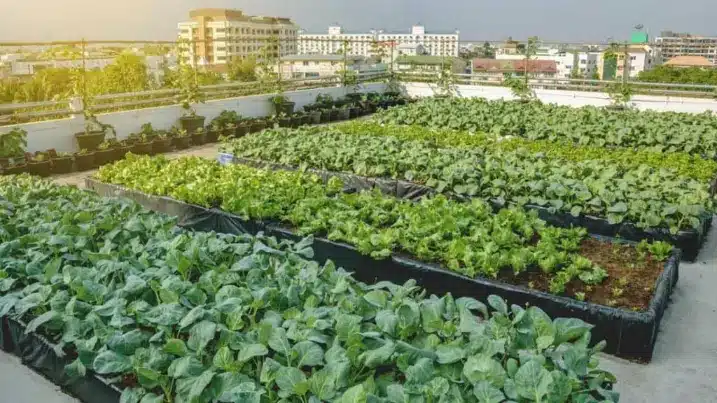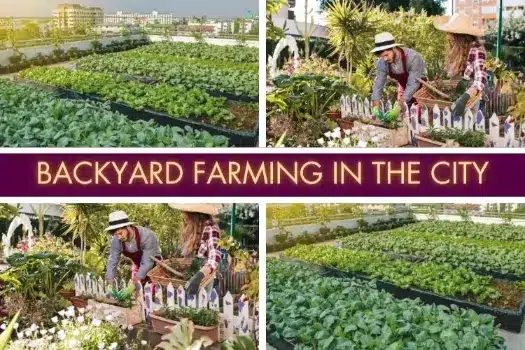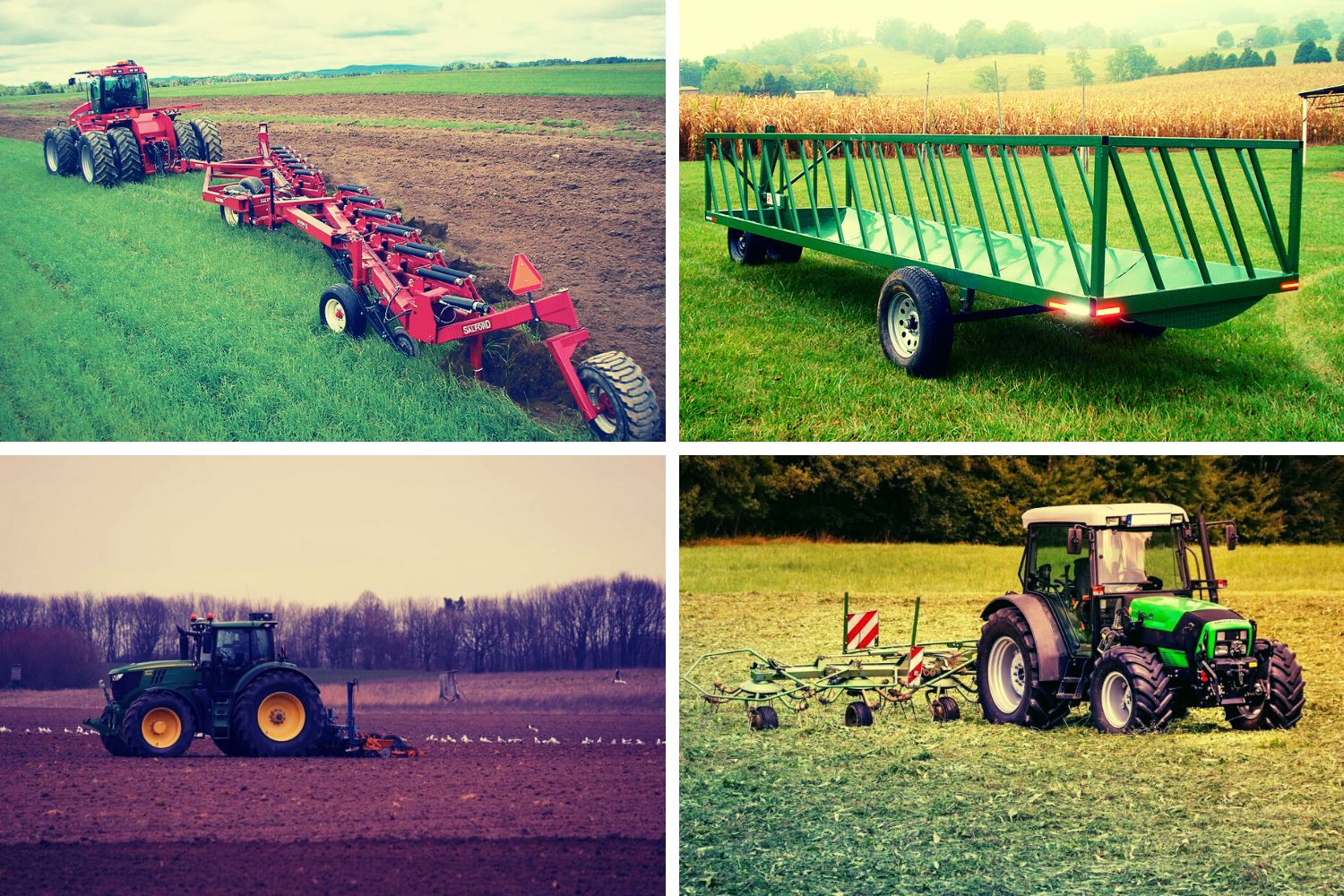In recent years, urban agriculture has emerged as a compelling solution to address some challenges associated with modern food production and distribution. More and more city-dwellers are discovering the joys and challenges of cultivating their food right in the heart of the metropolis.
While having a backyard farm in the city is undoubtedly appealing, it comes with its unique set of advantages and disadvantages.
The Pros of Backyard Farming in the City

Backyard farming provides a lot of advantages to our modern city life. Here are some of them:
Sustainable Food Production
One of the most significant advantages of urban agriculture is its contribution to sustainable food production. By growing fruits, vegetables, and herbs in your backyard, you reduce your reliance on commercially farmed produce, which often involves long transportation routes and excessive use of resources.
You can even consider raising animals, like bees, for example. Unlike chickens or other livestock, bees, as long as they are managed properly with the right beekeeping equipment, don’t require constant monitoring. Just keep the hive healthy, and it will produce wax and honey for your needs.
This localized approach to food production not only reduces your carbon footprint but also promotes food security within your community. As cities grow, the importance of self-reliance in food production becomes increasingly evident.
Fresh, Organic Produce
Backyard farming gives you complete control over what goes into your food. You can grow your crops organically without harmful pesticides or synthetic fertilizers. This means you can enjoy fresh, nutritious, and chemical-free produce from your garden.
The satisfaction of harvesting your vegetables and fruits at the peak of their ripeness is a gratifying experience that contributes to a healthier lifestyle. Furthermore, the proximity of your garden ensures that the time between harvest and consumption is minimal, preserving the nutritional value of your produce.
Connection to Nature
Amidst the hustle and bustle of city life, a backyard farm provides a sanctuary for nature lovers. Tending to your garden allows you to reconnect with the earth, observe the rhythms of the seasons, and appreciate the beauty of plant growth.
It can be a therapeutic and fulfilling experience, reducing stress and improving overall well-being. The act of nurturing living organisms and witnessing their growth and transformation offers a profound sense of accomplishment. Many urban farmers report feeling more grounded and connected to the natural world through gardening.
Community Building
Urban farming often brings neighbors together. The act of sharing surplus produce with neighbors and participating in community gardening initiatives can foster a sense of belonging and strengthen local bonds.
As urbanites grow their own food, they discover shared interests and goals, forming tight-knit communities within the city. These communities can extend beyond the garden fence, creating social networks that support various aspects of urban life, from childcare to cultural events.
Economic Savings
In addition to the numerous health and social benefits, backyard farming can also lead to economic savings. While there may be initial investments in tools, seeds, and equipment, these costs can often be recouped over time.
Growing your own food reduces your grocery bills, especially if you focus on high-value crops or specialty herbs. Moreover, as you gain experience, you can save seeds from your own harvests, further reducing your expenses in subsequent growing seasons. The financial independence that comes with growing your own food is a compelling aspect of urban agriculture.
The Cons of Backyard Farming in the City

Backyard farming may be a great idea. However, it also provides disadvantages that need your consideration, such as:
Space Constraints
Perhaps the most prominent challenge of urban farming is the limited space available. Backyards are typically small in cities, leaving little room for extensive cultivation. This space constraint can limit the variety and quantity of crops you can grow.
However, creative solutions such as vertical gardening, container gardening, and the efficient use of space can help maximize productivity in limited areas.
Time and Effort
Successful gardening demands time and effort. Plants need regular care, including watering, weeding, and pest control. If you have a busy schedule, maintaining a backyard farm can become overwhelming.
It’s essential to allocate sufficient time for gardening tasks, especially during planting and harvesting seasons. While gardening can be therapeutic, it’s also a commitment that requires dedication and consistency.
Zoning and Legal Issues
Many cities have zoning regulations and ordinances governing land use. It’s essential to research and comply with these regulations to avoid potential legal issues. Some cities may have restrictions on livestock, gardening structures, or the use of certain chemicals.
Engaging with local authorities and seeking permits, where necessary, can help navigate these challenges. Understanding and abiding by zoning laws is crucial to the long-term success of your backyard farm.
Initial Costs
Starting a backyard farm, even on a small scale, may require some initial investment. You may need to purchase gardening tools, high-quality soil, seeds, or seedlings, which can add up. Additionally, setting up irrigation systems, constructing raised beds, or investing in garden structures can incur costs.
While these expenses can be daunting, they are often an upfront investment that pays off over time through savings on grocery bills and the satisfaction of homegrown produce.
Unpredictable Urban Environment
Urban environments can be unpredictable. Pollution, air quality, and extreme weather events can impact the health of your plants. You might also encounter challenges related to soil quality and contamination, which can affect the suitability of your land for gardening.
Hence, it’s essential to conduct soil tests and take steps to mitigate environmental risks. Being prepared for unexpected challenges is a crucial aspect of successful urban farming.
Bottomline
Urban agriculture by starting a backyard farm in the city offers both rewards and challenges. It promotes sustainability, provides access to fresh, organic produce, and connects individuals with nature and their community. However, its disadvantages also need careful consideration.
Successful urban farming requires careful planning, dedication, and a love for nurturing plants. By understanding the pros and cons, aspiring urban farmers can make informed decisions to create their own green oasis amid the cityscape.






